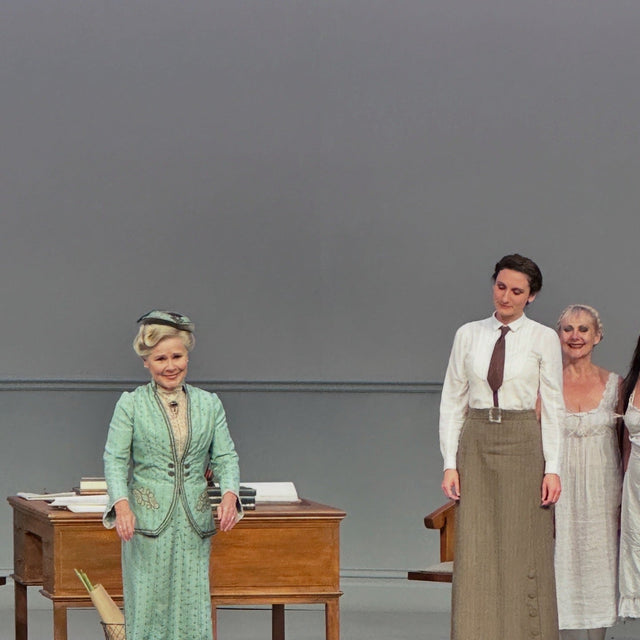Mrs Warren's Profession with Imelda Staunton
I went to see Mrs. Warren’s Profession by George Bernard Shaw (first performed in 1902), currently at the Garrick Theatre in London with Imelda Staunton as Mrs. Warren and Bessie Carter (her real daughter) as Vivie.

The play is about a former prostitute, now a madam (brothel proprietor), who attempts to come to terms with her disapproving daughter. Bernard Shaw wanted to illustrate that the act of prostitution was not caused by moral failure, but by economic necessity.
When Mrs. Warren's Profession was first performed in 1902, it was highly controversial due to its bold treatment of prostitution, female independence, and societal hypocrisy. The play was banned in Britain for several years because it was seen as morally corrupt and scandalous. Shaw's direct challenge to conventional ideas about women's roles in society and the economic realities that forced women into the sex trade was considered provocative. The play was eventually performed, but it was widely discussed in moral and feminist circles, creating a stir not only for its content, but also for its unapologetic portrayal of a mother's choices and a daughter's disillusionment.

In the context of Victorian times, women were expected to adhere to strict moral codes, and their roles were largely confined to the domestic sphere. The existential dilemma of Mrs. Warren's Profession is that, while women like Mrs. Warren are portrayed as making choices to survive, society still labels them as immoral and unworthy of respect. Bernard Shaw wanted to emphasise that true morality is not a matter of adhering to societal norms but rather understanding the deeper forces that shape individuals' choices and actions.
Vivie represents a more existentially free individual. She has the education and opportunity to maker choices independent of societal constraints (she has self-knowledge and takes personal responsibility), yet she struggles with the moral implications of her mother's actions.

Apart from the excellent acting, the play highlights how even in 2025, many of the core issues around gender inequality, economic pressures, and the struggle for agency remain relevant. Women have greater access to education, employment, and legal rights, but systemic barriers still exist. Gender pay gaps, underrepresentation in leadership roles, and unequal access to opportunities persist across various sectors.
Just as Vivie Warren seeks to assert her independence and moral stance in the face of her mother’s actions, women today continue to fight for the right to make choices without external interference. The pursuit of autonomy, independence, and the right to make moral and personal decisions remains a key struggle.

